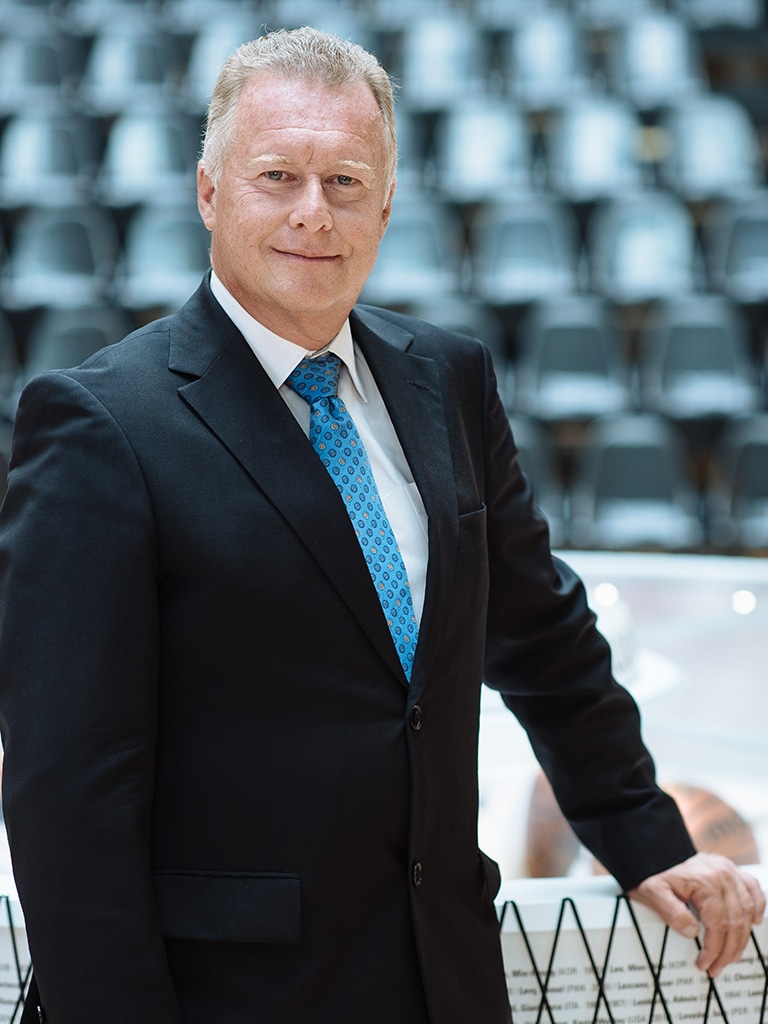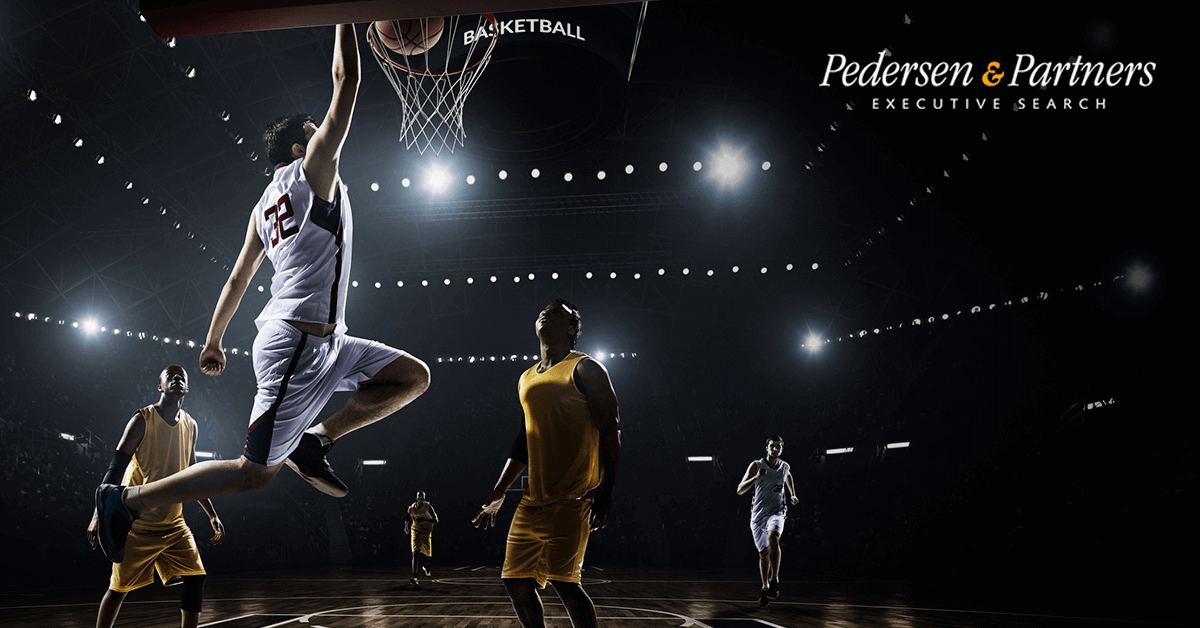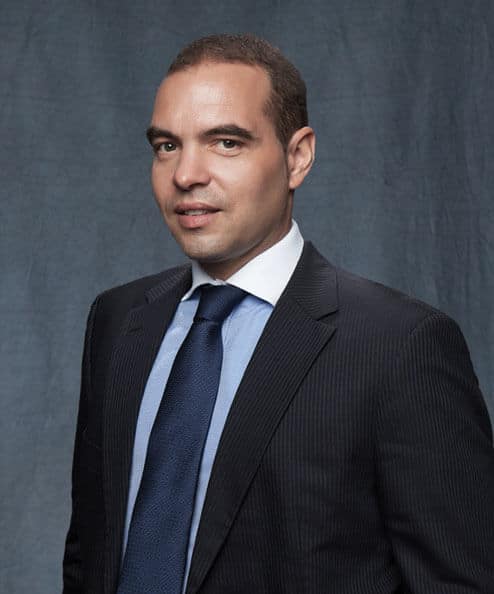Season II "Interview with Sports Executives": Didier Rossi, Global Head of Human Resources, FIBA
This series consists of short three-question interviews conducted by Gautier Vasseur, Partner at Pedersen & Partners, with experts in the sports industry, to gain insights into the strategic governance and human capital challenges faced by sports organisations.
 In 2015, Mr. Didier Rossi joined FIBA, the international governing body for basketball, as Global Head of Human Resources to transform the organisation into a fully integrated “ONE FIBA” structure. Prior to this, Mr. Rossi worked for Procter & Gamble for over 20 years; in his last role, he led the HR organisation of a global unit of several thousand employees. Mr. Rossi is also a Board Member of Premiumpeers and President and Founder of Innocherche in Switzerland.
In 2015, Mr. Didier Rossi joined FIBA, the international governing body for basketball, as Global Head of Human Resources to transform the organisation into a fully integrated “ONE FIBA” structure. Prior to this, Mr. Rossi worked for Procter & Gamble for over 20 years; in his last role, he led the HR organisation of a global unit of several thousand employees. Mr. Rossi is also a Board Member of Premiumpeers and President and Founder of Innocherche in Switzerland.
During your career, you have handled major organisational transformations for both FIBA and P&G. How do you compare driving changes in a major global business corporation with the second largest international sports federation?
Although sports federations have fewer resources, they compensate for this with a passionate workforce, including former players who are dedicated to their sport and ready to learn and work harder in order to serve it better. This commitment naturally stimulates engagement and compliance within a disrupted environment, and we have found that this energy needs to be focused through the implementation of methods and systems, typically more developed in the corporate sector. During this process, it is relatively simple to develop and change the business and leadership skills of the ex-athletes with traditional self-development techniques, training and coaching tools.

What are the specific organisational risks in a sport governing body and how can they be addressed by the Board?
Sports organisations often have a hierarchical structure with clear levels of authority for efficient decision processes. However, information tends to flow “top-down”, which can create the risk of siloed thinking and self-regulation that can affect inter-department communication and strategic planning efficiencies. Cross-functional activities and internal mobility can enhance creative thinking across the organisation and should help managers to balance their own agendas with the collective goals of the federation. Succession plans for key positions must also be carefully developed and put in place.
Based on your experience, what are the essential transferable skills for business executives in a leadership role for a sporting organisation?
The competencies that are needed to operate in the support functions of a sport organisation are similar to most other business sectors, but front office jobs require specific knowledge and networks that are not easily transferable and take time to acquire. Newcomers in the sport industry therefore need the necessary humility, personal interest and curiosity to understand the sports specialists’ vision, as well as the creativity to translate it into novel operational plans. They must also be ready to multi-task with limited support. In return they will enjoy working in a truly sporting values-based culture.
 Gautier Vasseur is a Partner of Pedersen & Partners, based in the Greater Geneva area. He is a multicultural Executive Search professional who has lived in over 10 countries, and completed hundreds of cross-border assignments for Senior Leadership, Board and Supervisory Board level recruitments. Mr. Vasseur has been with Pedersen & Partners since 2003, developing the firm’s growing presence across CEE, Russia/CIS and APAC out of our respective Prague, Moscow and Shanghai offices. He writes articles on various management topics, and has spoken at numerous conferences on recruitment and leadership issues related to Emerging Markets.
Gautier Vasseur is a Partner of Pedersen & Partners, based in the Greater Geneva area. He is a multicultural Executive Search professional who has lived in over 10 countries, and completed hundreds of cross-border assignments for Senior Leadership, Board and Supervisory Board level recruitments. Mr. Vasseur has been with Pedersen & Partners since 2003, developing the firm’s growing presence across CEE, Russia/CIS and APAC out of our respective Prague, Moscow and Shanghai offices. He writes articles on various management topics, and has spoken at numerous conferences on recruitment and leadership issues related to Emerging Markets.Pedersen & Partners is a leading international Executive Search firm. We operate 57 wholly owned offices in 53 countries across Europe, the Middle East, Africa, Asia & the Americas. Our values Trust, Relationship and Professionalism apply to our interaction with clients as well as executives. More information about Pedersen & Partners is available at www.pedersenandpartners.com
If you would like to conduct an interview with a representative of Pedersen & Partners, or have other media-related requests, please contact: Diana Danu, Marketing and Communications Manager at: diana.danu@pedersenandpartners.com
